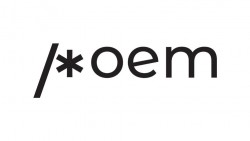POEM Opening Conference "Participatory Memory Practices"

Participatory memory work (PMW) is a framework for examining the strategies and practices of public memory institutions - libraries, archives, and museums - as well as of individuals and groups in their everyday life. PMW means the inclusion of diverse memories across social situations (gender, socio-economic status, education, migration, etc.) into public memory work. It means to acknowledge these diverse memories as a significant part of the history, the heritage, and the contemporary life in Europe. Aiming for a socially inclusive public memory, concepts of European cultural citizenship are increasingly debated and experimented widely with participatory approaches in public memory institutions. At the same time, new memory ecologies have emerged with networked media infrastructures and their extensive uses, in mediatized, globally connected societies. The Internet and social media are “natural” parts of self-representation, marketing, or audience communication of public memory institutions; large-scale digital heritage initiatives demarcate the transformation activities towards digital cultural production.
However, the participatory turn in memory work, essential for a socially inclusive public memory, turns out to be not as easy to implement in practice. Aside from the established memory institutions, people and groups explore Internet platforms for commemoration and sharing personal texts, photos, or videos and collaboratively contribute to an emergence of open access “archives” of everyday life. The diverse platforms, e.g. YouTube, Facebook, Twitter, Instagram, Pinterest, etc., broadly attract people and groups for contributing cultural materials, articulating their views of history/histories, and enfolding personal and group-related memory practices. Even though they are public, these Internet “archives” are beyond the scope of public memory politics and institutions; they are run for economic purposes in private ownership. The accessibility of these “archives” is regulated by business models and remains unclear towards the future. Connecting personal and group-related memory work in the public to participatory memory politics is thus confronted with legal and economic obstacles, ethical issues, as well as with discontinuities and gaps of individual and institutional social practices of memory work. This highlights the changed technical, organizational, and legal modalities of doing participatory memory work for social inclusive memory politics.
The registration is open now. For further information, please refer to the project website: https://www.poem-horizon.eu/opening-conference/(opens in new window)
Keywords
conference, participation, cultural heritage, empowerment, memory, digitization, digital heritage, social inclusion, social innovation, MSCA, H2020, ITN


